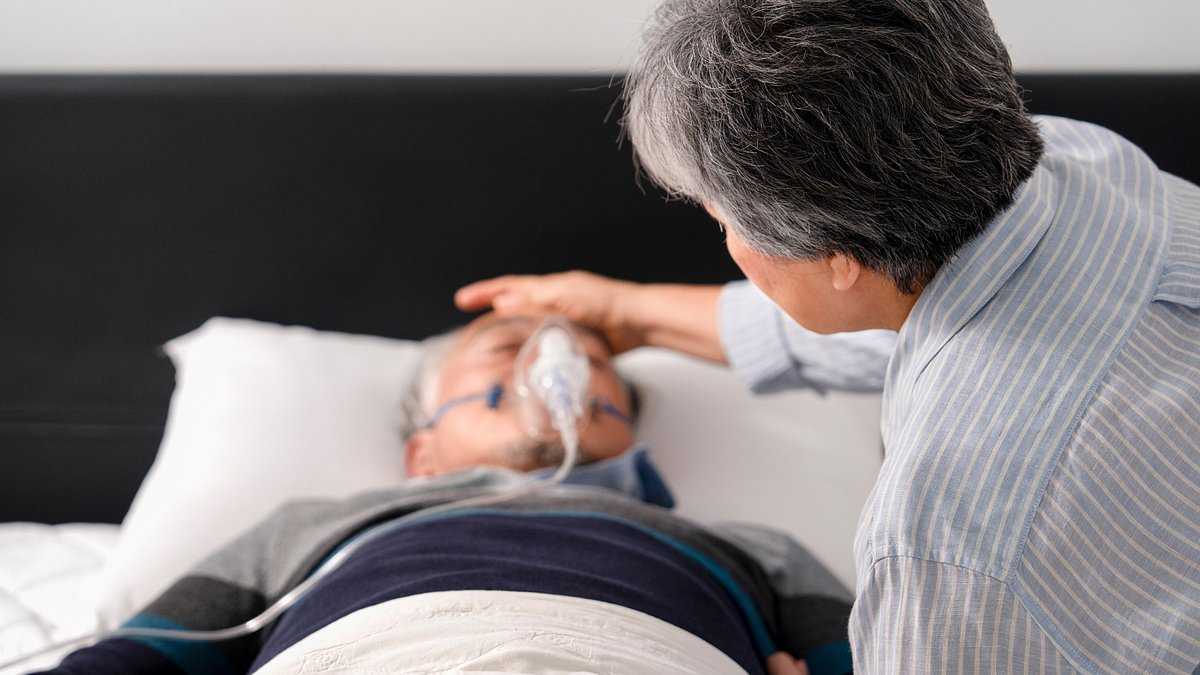Elderly patients nearing the end of their life are needlessly being given distressing and risky diagnostic scans, a study suggests.
Researchers say the wasteful checks also increase costs for the NHS, extend hospital stays and delay access to scanners for people with many more years to live.
The findings reflect an increasing national trend for medicalisation and poor recognition of dying, the experts add, with many doctors ordering scans for fear of being sued, rather than on the basis of clinical need.
More than a quarter (28 per cent) of hospital admissions in England between September 2021 and 2022 were for patients aged 75 and over, and more than a third (35 per cent) were in their last year of life.

Elderly patients nearing the end of their life are being given needlessly distressing tests and scans (stock image)

There is little evidence to support the benefits of these investigations in this group of patients, according to study leader Dr Joseph Hawkins (stock image)
Total imaging activity has increased in England since 2013, with 44million radiological procedures carried out in 2021/22, of which around one in five were for patients aged 75 or older.
However, there is little evidence to support the benefits of these investigations in this group of patients, according to study leader Dr Joseph Hawkins, a consultant in palliative care at Ashford and St Peter’s Hospitals NHS Trust.
To strengthen the evidence base, his team reviewed the clinical notes of every fourth patient who died at the age of 80 or above between July and December 2021 after admission to one hospital in the South of England.
Of the 96 patients admitted, the average age at death was 88.
Within their last six months of life, 389 x-rays, 92 ultrasound scans, 192 CT scans, and six MRI scans were carried out on this group.

Almost a third (30 per cent) of those aged 90 and above underwent six to nine radiological procedures (stock image)

There is the expense for an already overstretched health service, with estimated costs for the 96 patients totalling around £102,000 (stock image)
Nearly 28 per cent had six to nine procedures and 26 per cent had ten or more, according to findings published in the journal BMJ Supportive & Palliative Care.
Almost a third (30 per cent) of those aged 90 and above underwent six to nine radiological procedures, with the highest number of ten or more given to 43 per cent of 80 to 85 year olds.
The researchers said: ‘These results raise questions regarding the real benefit of radiological investigations in this patient cohort.
‘It has been estimated that between 20 per cent and 50 per cent of high-tech imaging scans did not provide additional information to improve patient outcomes.
‘Furthermore, the motivation for imaging requests may not always be entirely for diagnostic benefit, and it has been shown that scans may be requested for fear of medicolegal ramifications or as a result of patient expectation.’
These procedures are not without risk, the researchers warn.
This includes patient distress, need for sedatives, and the longer time spent in hospital as a result, increasing the chances of infection and falls.
Furthermore, there is the expense for an already overstretched health service, with estimated costs for the 96 patients totalling around £102,000, they add.
‘We speculate that it is the loss of appropriate weighting on the importance of recognising dying and managing subsequent conversations, which is the crux of these missteps in clinical management that lead to a burden of over-investigation on both patients and the health service,’ the researchers conclude.










